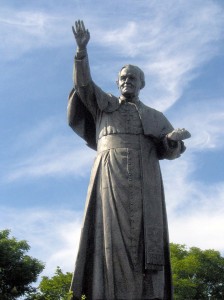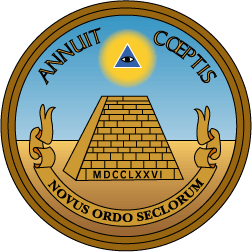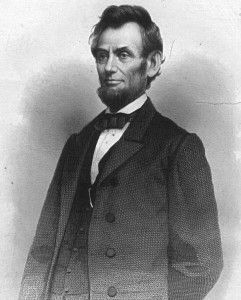Seventy-one percent of Americans told pollsters two things last week: first, that the middle class in this country is paying far too heavy a load of all income taxes. This first point is dead on. The IRS reports that the top 50 percent of income earners paid over 97 percent of all income taxes. A pretty hefty burden, indeed.
That there are many who need help is partly understandable. Think of the scores of millions of elderly, disabled, young unmarried mothers and their children, and the millions currently out of work. Not much in income taxes to be collected there. So, okay, the top half is carrying the lower half. Not such an un-Christian thing to do. It is, in secular terms, a humanistic thing to do.
But the people also told pollsters that “the rich” were paying too little. I have found in all the jobs I’ve ever held that no one (except some Board members who are CEOs) ever thinks they are included in “the rich.” When they say “rich” they mean people who earn more than they do.
Well, in recent years, face it: If you earn more than $175,817, you are in the top 5 percent. The IRS reports that this relatively small circle – 5 percent – pay 59 percent of all income taxes paid. Wow! Five percent pays 59 percent of all federal income taxes. That leaves only 41 percent of income taxes for the next 45 percent of us to pay (if the top half is carrying the bottom).… Forty-five percent to pay 41 percent. Unfair? Fair enough?
The top 5 percent – professional athletes, Hollywood producers and actors, heirs, inventors, investors in start-up companies and new ideas for products, the top business executives, a few bestselling authors, etc. – pay 59 percent of all federal income taxes. They receive a ton of income, they should pay a ton of taxes. And they do.
I find it helpful to keep a little chart in front of me to refresh my aging memory:
Bottom 50 percent (< $36,055): pays 3 percent (or a bit less).
Top 50 percent (> $36,055): pays 97 percent.
Top 25 percent (> $73,354): pays 87 percent.
Top 10 percent (> $125,195): pays 70 percent.
Top 1 percent (> $434,682): pays 38 percent.
I have always hated the sin of envy. My family suffered from the envy of others from early on, but not because we were wealthy. We were dirt poor – immigrant children of the mines and mills of soft coal country in Pennsylvania. But my dad was brainy, imaginative, a born leader, and taught us all to work our butts off. Immigrant envy of those a bit more successful is a painful thing when you are young.
My dad taught us not to envy the rich, since they are doomed to unhappy lives. Why? Because if you are rich enough to have what you want, he said, you have no one to blame but yourself for any unhappiness you experience. And you can count on plenty of that in every life. My dad did not believe in equality, he believed in excellence. In that race, those born poor can beat the rich.
From the American Founders, I first learned to despise “utopic thinkers” – and “equality of outcomes” – for intellectual reasons. Madison warned sternly against the utopic thinkers (probably meaning Rousseau), and called equality (of outcomes) a “wicked project.” As I studied Catholic thought for some fifteen years, I saw reasons for its being a hierarchical Church, for resisting egalitarianism, for meditating on how the Lord God did not endow individuals equally (not even in the same extended family). He did not endow the nations of the world with the same natural riches, or geographic advantages, or traditions (undeserved) of virtue and learning and artistic talent.
God is no egalitarian. Nature is blessedly full of variety and “dappled things.”
I read in awe as a young man Leo XIII’s condemnations of the ideal of equality in Rerum Novarum. He said all socialist preaching of equality was against nature, evil, and in vain. He praised the civilizing glories of God-given inequalities of talent, aspiration, and character:
It must be first of all recognized that . . . it is impossible to reduce civil society to one dead level. Socialists may in that intent do their utmost, but all striving against nature is in vain. There naturally exist among mankind manifold differences of the most important kind; people differ in capacity, skill, health, strength; and unequal fortune is a necessary result of unequal condition. (RN, 17)
Again, as assiduous students during their ambassadorial posts in Britain and France, Adams, Franklin, and Jefferson studied the twin evils both of inequalities by birth and station and of the “wicked project” of leveling, whose ultimate symbol is the guillotine. Our Founders faced a weighty historical question: Why did almost all republics in history end quickly? Their conclusion? Envy brought them down. The early republics were nests of envy – between sections of cities, rival dynasties, and bitter personal competitors.
They thought the more creative path for a freshly born republic, conceived in liberty, as Lincoln put it, and dedicated to the proposition that all men are created equal, is not “equality” but something quite different: the path of opportunity, liberty to pursue one’s own dreams and personal talents, and personal creativity in serving the common good. Envy is negative. These are positives.
Envy is a more destructive social vice than hatred. It tears apart, pulls away, brings down. It is neither creative nor respectful of disparate outcomes within free societies. Many necessary disparities, as Leo XIII emphasizes, are socially beneficial. As when persons of vastly diverse talents find satisfaction in the work they take up, not envying the work or the rewards of others.











